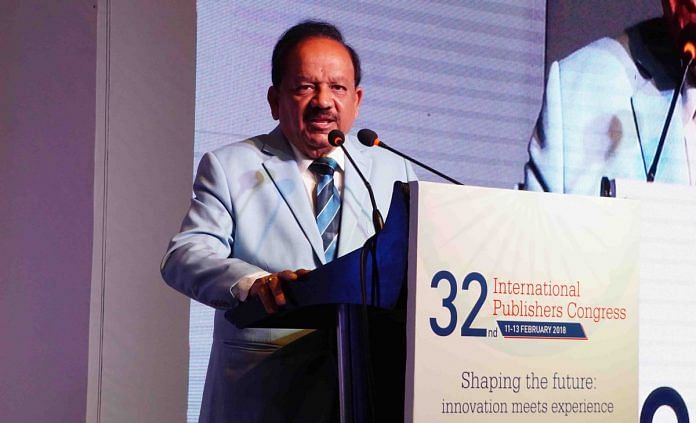New Delhi: In a first, scientists at the Council of Scientific and Industrial Research (CSIR) have successfully launched India’s human genome mapping project that will effectively help researchers develop therapies for diseases such as cancer and precision medicine.
The project, known as IndiGen, has been developed over six months by CSIR’s Institute of Genomics and Integrative Biology (IGIB) and Centre for Cellular and Molecular Biology (CCMB).
Genome sequence of 1,008 Indians, representing over 55 different ethnic populations and age groups, have been collected to create a bank of genetic data.
A genome is an organism’s complete set of DNA. Genome sequencing creates a map of all the genetic components that make up an individual and helps researchers unravel the functions and characteristics of each genome.
Announcing the achievement, Dr Harsh Vardhan, Minister of Science and Technology, said IndiGen will help faster and more efficient diagnosis of rare genetic diseases. The initiative will also make genetic tests more cost-effective, help diagnose heritable cancers and conduct tests to prevent adverse drug reactions.
Also read: Most genetic studies use only white participants – and that affects public health
Finding answers to unanswered medical questions
While genetic mapping is widely done for research purposes across the globe, most of such initiatives have included data primarily from white individuals. With IndiGen, a new data set for the Indian population is being created that will help scientists in predictive diagnosis and develop medicines that are tailored for the indigenous population.
Among the data collected, scientists have also included 100 individuals above 90 years of age with the hope that analysis of their genome will help identify the gene predicting long life among Indians.
Rakesh Mishra, director of CSIR-CCMB, said researchers have included individuals with unique health conditions too, to help find answers to some unanswered questions of medical science.
The Arya Vaisya Chettiyar community of Tamil Nadu, for example, is fatally allergic to certain anaesthetics. The reasons behind this condition has not been understood until now.
Mishra said the team of researchers will now try to look for the gene connected to this unique condition.
“There is a village in Shimoga, Karnataka, where half of the individuals have very short height, and their knees are distorted. So we have done the genome sequencing for 100 individuals from that village. We will try to identify what is common in their genome,” he further said.
Cutting down costs of genetic screenings
The genome bank specific to the Indian population will also help cut down costs of genetic screenings and therapies.
“So far we used gene data banks from US and UK to provide diagnosis, but having a data bank of the Indian population will help give more accurate results,” Ishaan Khanna, CEO of LifeCell Diagnostics, told ThePrint.
With an available data bank, laboratories can now conduct specific tests to look for target genes that are linked to a disease, rather than having to conduct a whole genomic sequencing for every patient.
“For example, if a person wants to get a cancer screening, we already know which genes increase the risk, and so we can specifically test for those. This brings down the cost significantly,” Khanna said.
The data can also help expecting couples to identify the health risk factors that may be inheritable.
CSIR has also created an IndiGen card and an accompanying IndiGen mobile app that will help people access health information once they get their genome sequenced.
Sridhar Sivasubbu, director of CSIR-IGIB, said the idea behind this project is to show the capability and scalability of building a large-scale human genome database for the Indian population. He also assured that information on the IndiGen card and app is highly secure to prevent privacy violations.
Also read: How where you’re born influences the person you become




Was it not Hitler who started measuring the head size in Germany?? Or it was yet another one like now?